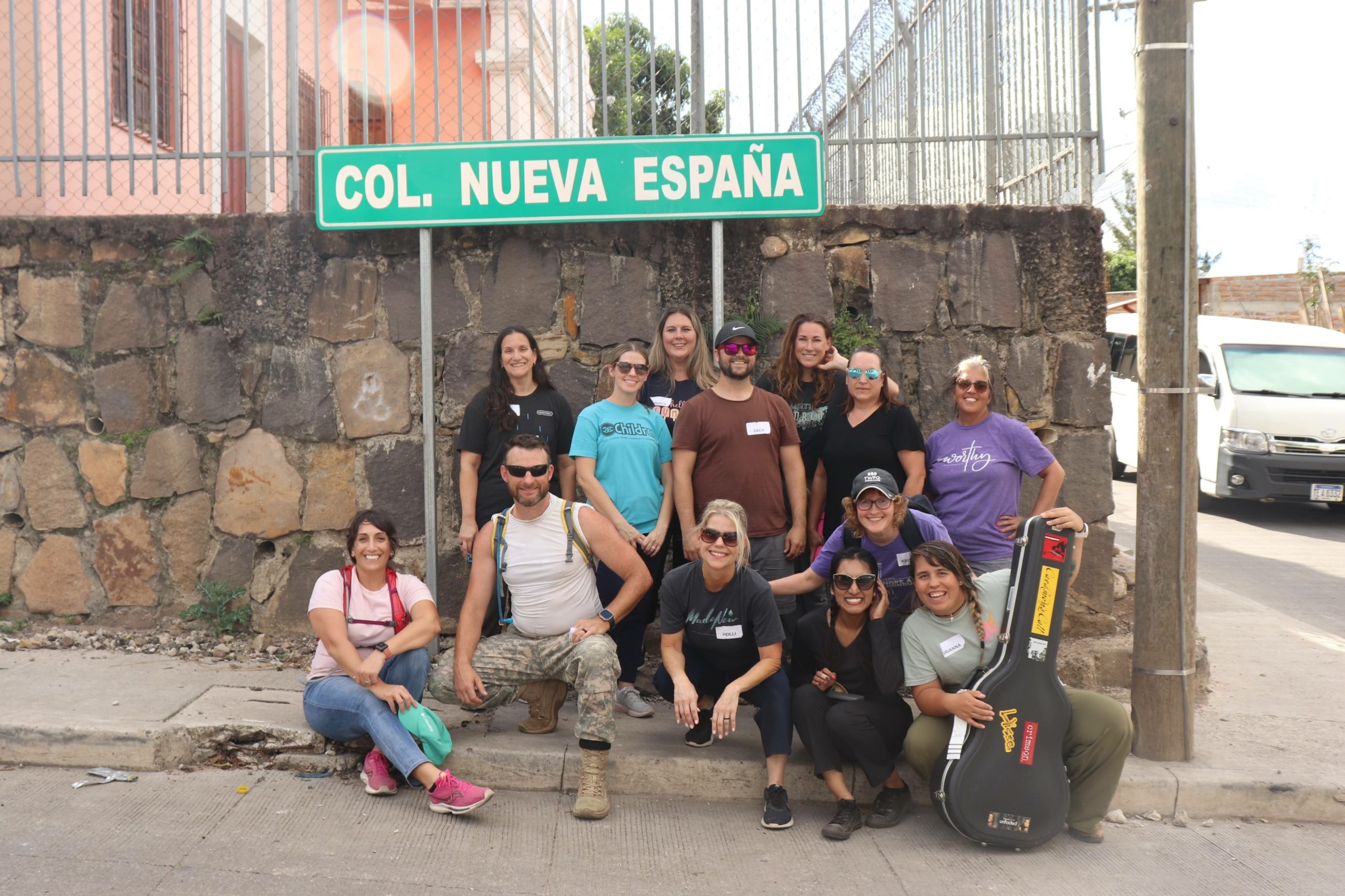A New Creation: The Kevin Mikulan Story
When Kevin Mikulan started dipping his toes into the party scene, he thought everything would be fine. He enjoyed his new friends, and the alcohol made him feel good. He felt like he was finally finding the acceptance and respect he longed for. Most of all, he gained a reprieve from the growing depression that gnawed at his heart and mind. But those first steps soon transitioned into hard drugs and a sense of deepening inner emptiness that he couldn’t escape.
Stepping into a bar was a drastic shift from the conservative Christian environment in which he grew up. He was the son of two Christians who never touched alcohol or drugs. Throughout his childhood and middle school years, his family regularly attended a church that Kevin saw as very strict. Describing this time in his life, Kevin said, “I knew all the stories of the Bible. I knew of God, but I didn’t have a relationship with God. I could recite verses and I could tell you any story in the Bible back then, but it was never a relationship.”
When he was a freshman in high school, his family began attending Clear Creek Community Church, which felt like a whole new world. Now he saw people full of love and joy, and the atmosphere felt free of the judgment he’d felt at his previous church.
Throughout his high school years, his parents were actively involved in the church, and this naturally trickled down to Kevin and his siblings. Kevin even completed two summer internships at the church, seeing the details of how the church operated. To him, Clear Creek appeared to be a church fully committed to furthering the kingdom of God.
During this time, Kevin was sheltered from the outside world, temptations, and struggles. He didn’t experience much of what the world was really like. But that was about to change.
After completing high school, Kevin started going to the College of the Mainland Fire Academy, originally intending to be a firefighter, though he changed course after graduation. For the first time in his life, he was totally independent, able to go places without the knowledge of his parents or those they knew.
That’s when he started dipping his toes into clubs and alcohol use. Such things were strongly discouraged throughout his upbringing, and as he started to explore, he was surprised that those things felt okay. He tried more things, including marijuana. Everything felt new and strange to him, even crazy, but he enjoyed it. He was getting the acceptance from people that he craved, and he adopted a proud, “I’m the man” mentality. But he hid his activities from his parents, feeling that he should pretend to be a Christian to keep them happy.
Throughout Kevin’s second year of college, he delved deeper into the party scene including harder and harder drugs. He stepped away from the church, only going on rare occasions to keep his parents happy. Kevin still tried to hide what he was doing from them, but they could tell something was going on.
One day his parents sat before him, crying and saying, “What are you doing, Kevin? This is not who we raised you to be.”
He lied to them, trying to convince them that he was not doing drugs. He eventually stopped talking to them altogether, but his parents never stopped loving him or praying for him.
The next time he spoke to them was when his father had a major heart attack. Kevin went to the hospital and saw the medical staff working to keep his dad alive. He prayed, “God, if you’re really there, help him. If you help him, I’ll believe in you.” His dad improved, and as Kevin had bargained, he gave up alcohol and drugs. But two months later he backslid.
After graduating from the Fire Academy, an inner sense of loneliness grew within Kevin, despite having many friends and family around him. He didn’t know if he was happy or sad, and he started to question who he was. This transformed into deep, gnawing depression, which he tried to suppress by trying crazier and crazier things. He felt broken and lost.
At the same time, hatred grew in his heart towards God and Christians. He felt like God must be egotistical if he demanded praise, worship, and one’s entire life in exchange for salvation. And when Christians offered to pray for him, he felt indignant, thinking they were hypocrites no better than himself. Everything in church felt so fake.
Then, he ran into Amanda, his future wife, at a concert. He decided to quit hard drugs, figuring there was no reason to do them while he was in a relationship. But he continued going to bars and clubs, drinking alcohol and smoking marijuana. He would get into fights, and when they were over, he looked for Amanda only to find that she had left the bar. She caused him to reevaluate what kind of man he was going to be. But there was still a part of him that felt like he needed to pretend to be a Christian, for her and for everyone else in his life.
Kevin had many conversations with his brother Kyle and his friend Carson on Kyle’s back patio. They talked to him about Jesus, and he finally told them that he was not a Christian. Carson said, “That’s the most honest I’ve ever heard you be.” The comment cut Kevin to the core.
He realized he didn’t have to pretend anymore, and he was honest with Kyle, Carson, and Amanda about struggling with the idea of Christianity. They lovingly came alongside him and helped him gather whatever answers they could.
Kevin and Amanda married in 2022, and his first son was born in 2023. Motivated to be a good husband and loving father, Kevin decided to completely leave his old lifestyle behind, a decision Amanda played a key role in. She helped him make practical decisions about things to cut out of his life so he would no longer participate in the same activities he had before, including drinking at bars and smoking marijuana.
Kevin knew that his parents and his in-laws would expect his child to be raised in church, but he did not want to put his son in a place that taught things he didn’t believe in. He started re-learning about Christianity and joined a small group. He asked many questions, and those around him listened patiently and without judgment. It was one of the first times in his life he experienced unconditional love.
Kyle was intentional with Kevin, often inviting him to things to spend time with him. One invitation was a pickleball event hosted by the church. Kevin went, and the first person he saw was the father of his ex-girlfriend — a girl he had dated in high school and broken up with early in college when he had started drifting away from Christ. Kevin tried to hide his face in shame, expecting the father to have an angry or even violent reaction after the poor way Kevin had treated his daughter. But instead of hitting him, his ex-girlfriend’s father gave him a big hug and told him he missed him. He asked about Kevin’s wife and child, and other details of his life. Kevin was blown away by the grace he was shown and felt he had truly experienced God’s love.
Kevin was placed on a randomized team for a pickleball tournament and ended up on a team with none other than his ex-girlfriend’s husband. As before, Kevin expected a fight or bad blood, but instead, the young man smiled at him and shook his hand. Kevin was again astounded by the display of God’s love and grace.
Then Kevin went on a drive to Dallas with a friend. During the four-hour trip, his friend shared about the deep brokenness going on in his life. Kevin was surprised to find himself encouraging his friend with things that others had been telling him about God and Jesus — things he didn’t believe himself. Kevin realized he had to decide whether he was truly on board with Jesus or not. God’s peace washed over him as he realized it was okay not to have all the answers. He went home, and as he sat crying in a closet, he prayed and gave his life to Christ.
After this, Kevin’s entire mindset changed. Before, he wanted to be a good husband, but now he wanted to love his wife as Christ loved the church. He wanted to be a good father, but now he wanted to find ways to point his son to Christ. He had been focused on himself and his family, but now he wanted to get more involved in his church and serve other people.
His relationships have also changed. Although he loved his wife before, their now shared love of Christ added a new dimension and depth to their marriage. His relationship with his parents was restored. He talked to people at work he hadn’t talked to before, encouraging them to come to church. He even reached out to friends from his old life, sharing the gospel.
Kevin’s anger towards God and Christians completely melted away. Before, Kevin thought God must be egotistical to demand praise, but now, looking at all the changes in his life, he couldn’t imagine not praising him and living for him.
Wanting to obey Christ and to set a good example for his son, Kevin was baptized in December 2024. Today, he serves in the Student Ministry at Clear Creek Community Church as a leader for middle school boys. He has a Top Five list of people he prays for and seeks to build relationships with so he can extend to them the hope of Christ. Free of alcohol and drug dependency, anger, and depression, he now loves to reach out to those around him to tell them about Jesus.




 Maria Diaz’s experience of the pandemic was quite different from Krissy’s. As an ICU nurse, Maria’s work life became heavy and all-consuming. Long work hours, sickness, and death were all around. Isolation began to fill up the spaces that were once filled with friendship. When Covid caused all church services to go online, her feeling of spiritual community disintegrated. It was as though the spiritual wind was taken out of her sails.
Maria Diaz’s experience of the pandemic was quite different from Krissy’s. As an ICU nurse, Maria’s work life became heavy and all-consuming. Long work hours, sickness, and death were all around. Isolation began to fill up the spaces that were once filled with friendship. When Covid caused all church services to go online, her feeling of spiritual community disintegrated. It was as though the spiritual wind was taken out of her sails.








